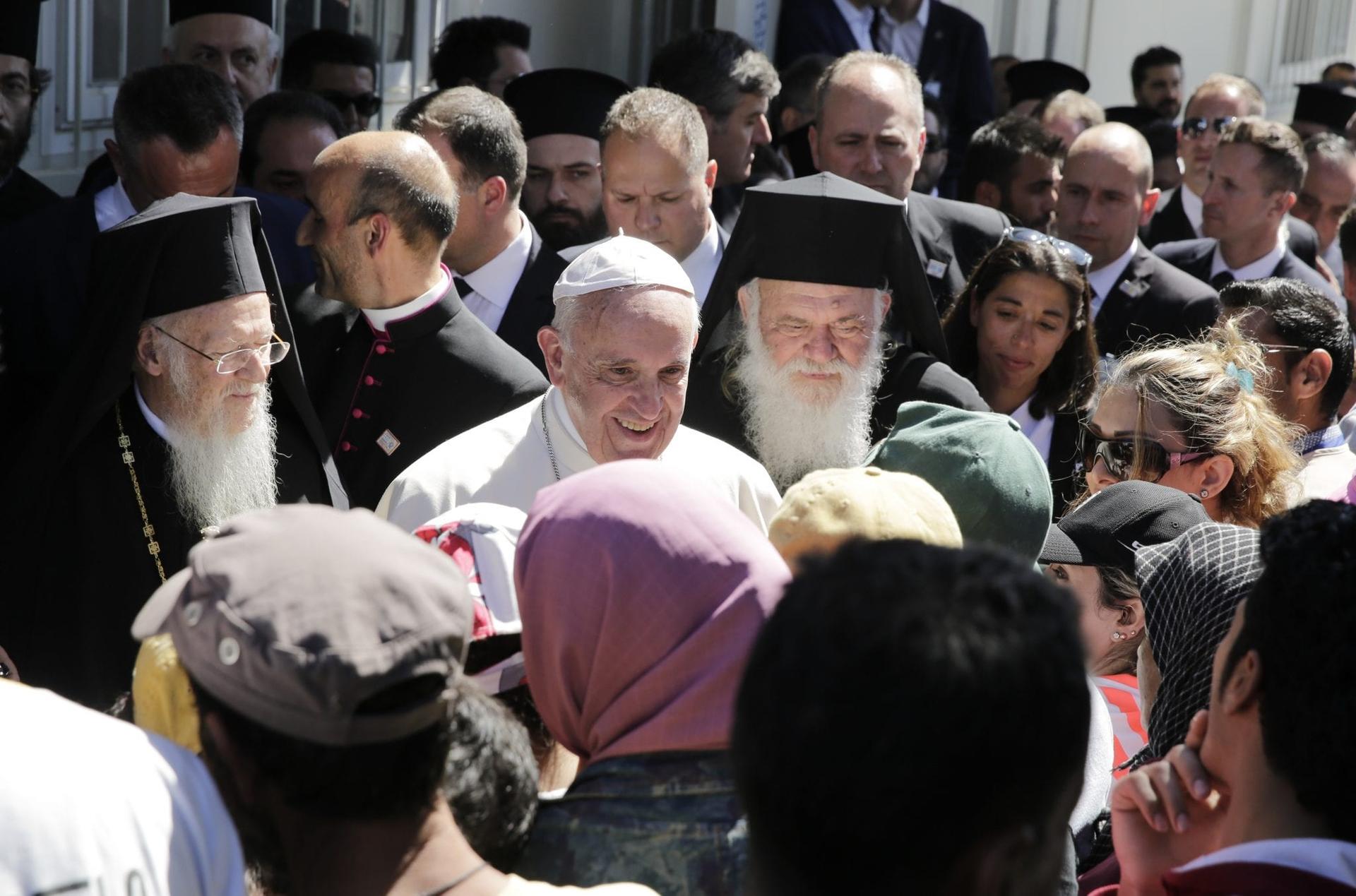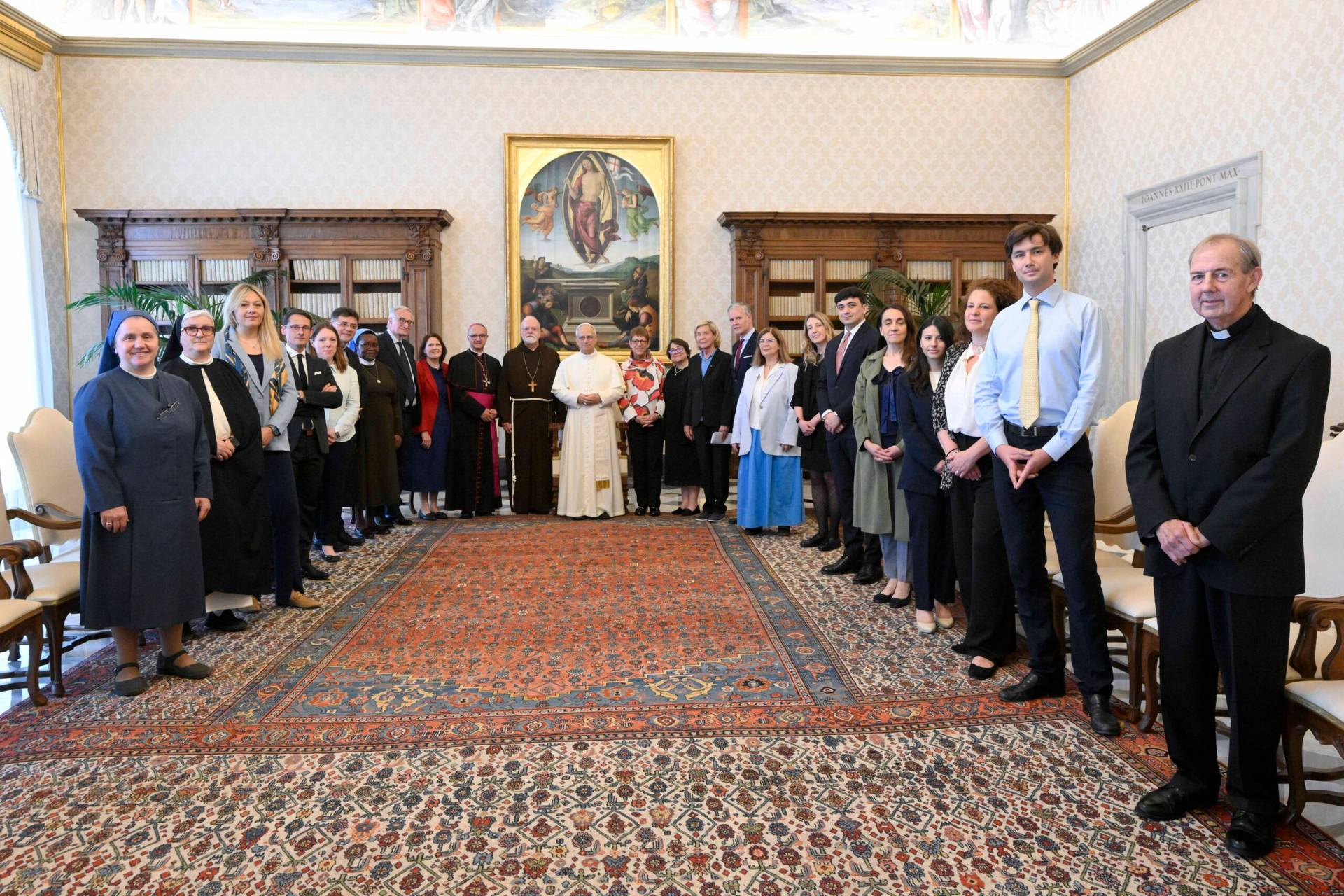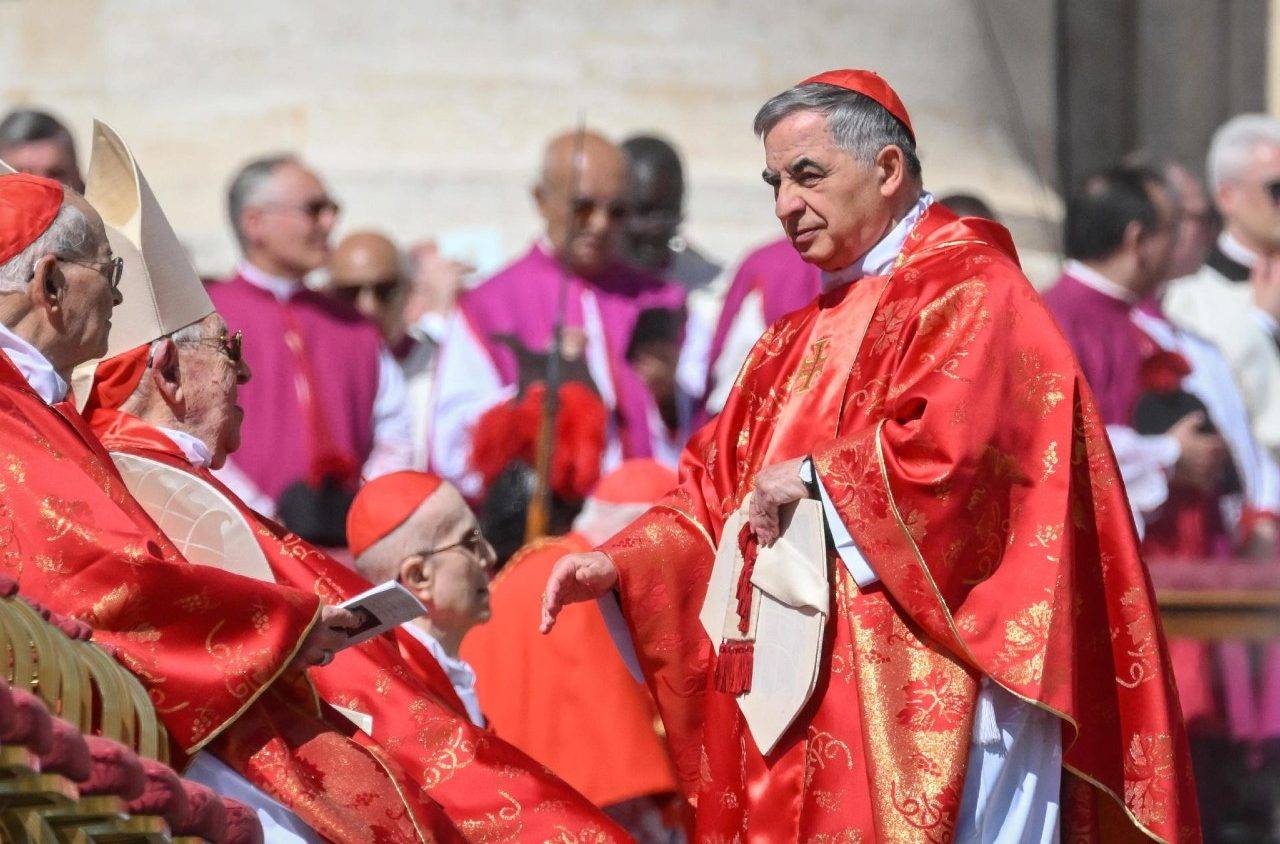ROME – Europe is heading to the polls in roughly two weeks, electing members of the European Parliament as well as a new President of the European Commission to replace Jean-Claude Juncker of Luxembourg, who’s held the post since 2014.
Though one never knows, right now polls suggest that right-wing anti-immigrant and Eurosceptic parties are poised to score well. For instance, polls suggest that Marine Le Pen’s far-right Rassemblement National will outperform French President Emmanuel Macron’s center-left coalition.
Perhaps by coincidence, or perhaps not, Pope Francis this week has delivered a gesture with clear significance for Europe’s future just as it seems most up for grabs.
The pope has dispatched Cardinal Konrad Krajewski, his almoner, meaning the official responsible for running the pope’s personal charitable activity, to the Greek island of Lesbos to present 100,000 Euro in aid for refugees and asylum-seekers, as well as to broadcast a message of what the Vatican described Wednesday as “reviving feelings of solidarity in Europe.”
Francis visited Lesbos in 2016, largely because it’s home to a massive refugee population composed of people from the Middle East and Africa seeking to enter Europe. He spent five hours on the island in the company of Patriarch Bartholomew of Constantinople, and, in an unscripted coda, he brought 12 Syrian refugees back to Rome aboard the papal plane.
“I am here to tell you, you are not alone,” the pope told the refugees that day on Lesbos. “So much more needs to be done but let us thank God that in our suffering he never leaves us alone,” he said.
The pontiff turned over the care of those refugees he brought home to the Community of Sant’Egidio, one of the “new movements” in the Catholic Church, and today they’re thriving in their new homes in Italy.
That visit took place in mid-April, so Krajewski’s outing comes more or less on the third anniversary.
At one level, it’s possible to see Francis’s initiative as a clear political statement ahead of the European elections, at a time when the future direction of Europe seems more up for grabs than at any time since the basis for the union was established in the 1950s after the Second World War.
Yet the truth of it is, Francis is almost entirely absent from the European political stage in any direct sense.
One would search in vain for any words or gestures by the pope that could be read as favoring one of the major candidates in Europe over the other – conservative Manfred Weber of Germany, for instance, versus Socialist Frans Timmermans of Holland or Liberal candidate Guy Verhofstadt of Belgium.
In a similar fashion, Vatican officials have been strikingly mum about the European elections, making it basically impossible to descry who the favored candidate or party of, say, the Secretariat of State, might be.
The main body of Catholic bishops in Europe, the Commission of the Bishops’ Conferences of the European Union, released a statement in February that could be seen as broadly rejecting the Eurosceptic position, calling for “a renewed brotherhood amongst people, relaunching the European project.” That, however, is still a far cry from an explicitly political call to arms.
This discretion stands in strong contrast with yesteryear, meaning the St. John Paul II years, when popes and their Vatican teams had clear favorites both in specific nations and at the European level.
When Cardinal Camillo Ruini was the pope’s Vicar for Rome and president of the powerful Italian bishops’ conference, for instance, there was rarely any confusion about who the Church-preferred candidate was in any given race.
Against that backdrop, there’s another way entirely to read Francis’s Lesbos initiative: Not as an attempt to influence electoral politics, but basically to short-circuit it. To put the point differently, this might just be how a post-political papacy rolls.
Suppose that a pope discerns that the political winds, at least in a particular part of the world, are blowing in a direction hostile to his vision. Suppose, too, he reaches the conviction that no matter who might prevail in a particular election, he or she is unlikely to be able to deliver the policies that the pope believes are required in a given moment.
One reaction is to fulminate, a bit like Pope Pius IX, who declared himself a “prisoner of the Vatican” following the fall of the Papal States and the declaration of the newly unified Italian state in 1870.
Another, however, is to engage in direct social action that bypasses the political system. That’s in effect what Francis did three years ago when he traveled to Lesbos with Bartholomew, in effect saying to refugees that they could count on the support of the continent’s Christian churches even if the political system was AWOL.
That, too, is a legitimate reading of what he’s doing this week with Krajewski’s mission.
In other words, what we may be witnessing right now isn’t another way for popes to engage the political process. At least potentially, it’s a way to ignore it altogether, instead delivering concrete here-and-now gestures intended both to shape situations on the ground and also to set a social tone.
That may not make the pope any less political, but it points to a papal politics beyond parties and institutions — the results of which will be fascinating to track.
















